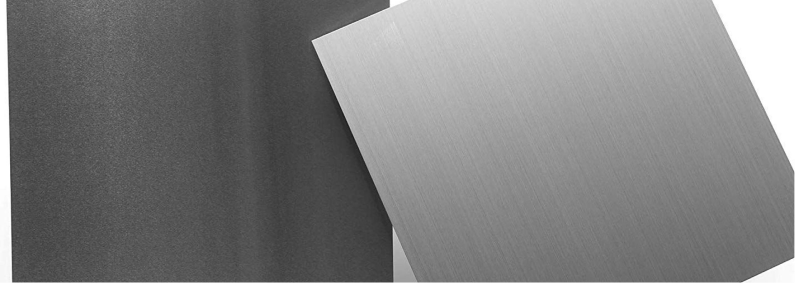Aluminium

Aluminum is a widely used, lightweight, and versatile metal known for its excellent corrosion resistance, high strength-to-weight ratio, and ease of fabrication. It’s the second most commonly used metal after steel, found in everything from automotive components and aerospace structures to household products and packaging. Aluminum’s properties make it ideal for applications that require durability without the added weight of heavier metals.
Key Properties of Aluminum
- Lightweight: Aluminum’s low density (about one-third that of steel) makes it ideal for applications where weight savings are crucial, such as in automotive and aerospace.
- High Corrosion Resistance: Aluminum naturally forms a protective oxide layer, which shields it from rust and corrosion. This is particularly beneficial in marine and outdoor environments.
- Excellent Strength-to-Weight Ratio: Although aluminum is lightweight, its strength can be enhanced through alloying and heat treatment, allowing it to handle heavy loads without excessive weight.
- Good Thermal and Electrical Conductivity: Aluminum conducts both heat and electricity efficiently, making it a preferred material in applications like heat exchangers, electronics, and electrical transmission lines.
- Recyclable and Sustainable: Aluminum is 100% recyclable, and recycling requires only 5% of the energy needed to produce new aluminum. This eco-friendly property supports sustainable manufacturing and resource conservation.
Types of Aluminium Products
Aluminium sheets and plates are known for their strength, lightweight properties, and excellent corrosion resistance. They’re widely used in construction, transportation, aerospace, and marine applications due to their durability, ease of fabrication, and aesthetic appeal. Common uses include body panels, roofing, cladding, and structural components.
Aluminium pipe fittings offer reliable performance in piping systems, with the added benefits of lightweight and corrosion resistance. These fittings are ideal for plumbing, HVAC, and marine applications. Due to their high strength-to-weight ratio and excellent weldability, aluminium pipe fittings can withstand demanding conditions while remaining easy to install and maintain.
Aluminium pipes and tubes provide superior performance in industries requiring a balance of strength, lightweight, and resistance to rust and corrosion. They are frequently used in automotive, aerospace, and marine applications, as well as structural and hydraulic systems. Their versatility and durability make them suitable for applications requiring high efficiency and longevity.
Aluminium flanges are designed to connect pipes and ensure secure, leak-proof connections in various applications. With excellent corrosion resistance and high strength, aluminium flanges are ideal for industries like oil and gas, chemical processing, and water treatment. They provide ease of installation and maintenance, making them a preferred choice for both temporary and permanent systems.
Applications of Aluminum
- Aerospace and Aviation
- Aluminum is widely used in aircraft fuselages, wings, and internal components due to its lightweight and high strength, contributing to fuel efficiency and performance.
- Automotive Industry
- Aluminum is used in engine components, wheels, and body panels to reduce weight, improve fuel efficiency, and enhance safety.
- Construction and Architecture
- Used in building facades, window frames, roofing, and structural elements, aluminum’s corrosion resistance and aesthetics make it ideal for exterior and interior applications.
- Packaging
- Aluminum is commonly used in beverage cans, foil, and food packaging due to its non-toxic nature, lightweight, and recyclability.
- Electronics and Electrical Applications
- As a good conductor of electricity, aluminum is used in power lines, heat sinks, and electronic enclosures.
- Marine Applications
- Due to its corrosion resistance, aluminum is popular in boat hulls, docks, and marine equipment exposed to saltwater environments.
Advantages of Aluminum
- Lightweight: Aluminum’s low density reduces the overall weight of products and structures, improving efficiency in transportation and aerospace applications.
- Corrosion Resistance: Its natural oxide layer protects aluminum from rust, requiring little to no maintenance even in harsh environments.
- Malleability: Aluminum can be easily cast, rolled, extruded, or machined into various shapes, making it adaptable for complex designs.
- High Strength-to-Weight Ratio: With the right alloying and treatment, aluminum can achieve significant strength without adding much weight.
- Recyclability: Aluminum is fully recyclable and retains its properties through multiple recycling cycles, reducing the environmental impact.
Aluminum Grades and Standards
- ASTM B209: Standard specification for aluminum and aluminum-alloy sheet and plate.
- ASTM B221: Standard specification for aluminum and aluminum-alloy extruded bars, rods, wire, profiles, and tubes.
- Aluminum 6061: Known for versatility, corrosion resistance, and machinability, 6061 is used in construction, automotive, and marine applications.
- Aluminum 5052: Known for excellent corrosion resistance and weldability, ideal for marine, chemical, and food processing applications.
- Aluminum 7075: High strength and used in aerospace and sporting goods, though it requires extra protection against corrosion.
Choose Aluminum for Lightweight, Durable Solutions
Aluminum is a versatile, sustainable choice for applications requiring strength, lightweight, and corrosion resistance. Whether you’re in aerospace, construction, or packaging, aluminum offers efficiency, cost savings, and long-term durability. Contact us to discuss your specific requirements, and our experts will help you select the right aluminum grade and finish for your needs.
FAQs
Aluminum naturally resists corrosion due to its oxide layer, but stainless steel offers better corrosion resistance in highly acidic or alkaline environments. For saltwater or marine settings, aluminum alloys like the 5000 series are highly corrosion-resistant.
Yes, many aluminum alloys can be welded, but the process requires specific techniques due to aluminum’s high thermal conductivity and oxide layer. Alloys in the 5000 and 6000 series are known for good weldability.
Aluminum’s high strength-to-weight ratio and resistance to corrosion make it ideal for reducing the weight of aircraft structures without compromising strength, which improves fuel efficiency and range

Products
Industry We Serve
- Oil & Gas industries
- Chemical process industries
- Pump and valve in high pressure component
- Food industries
- Pulp and paper industry
- Aerospace industry
- Power plant
- Mechanical component
- Sugar industry
- Cement industry
